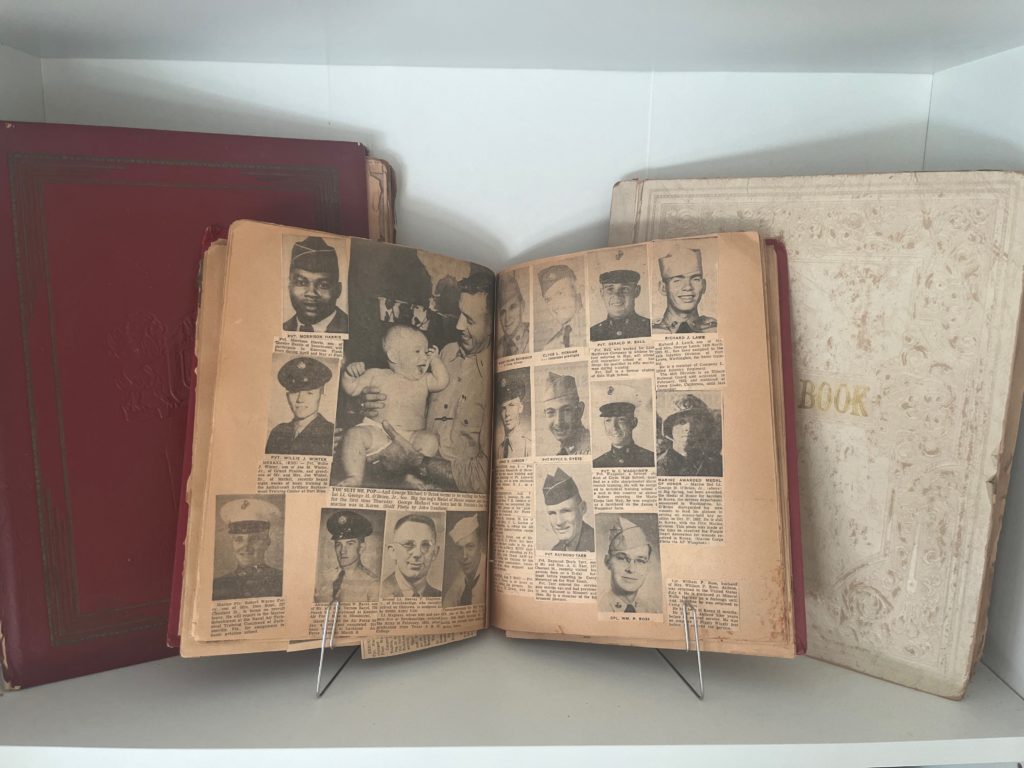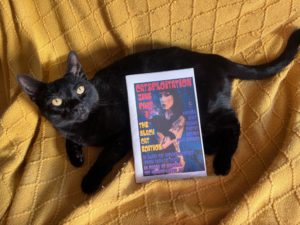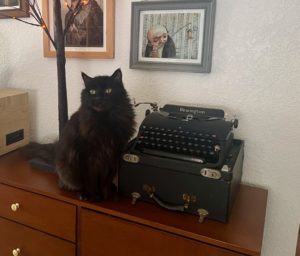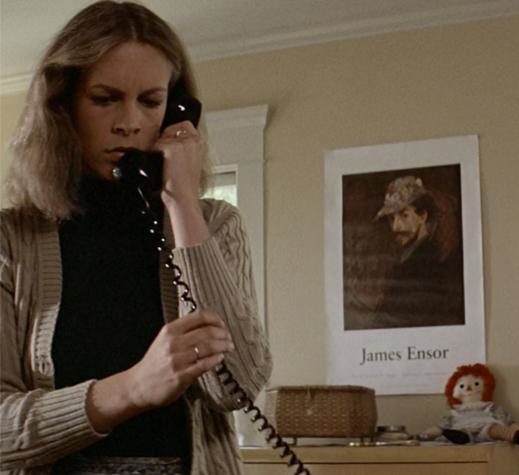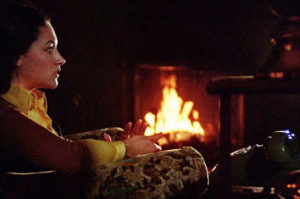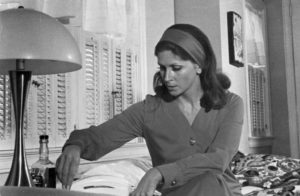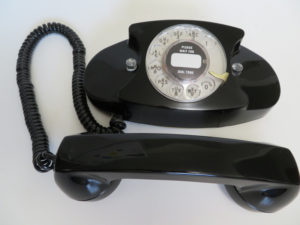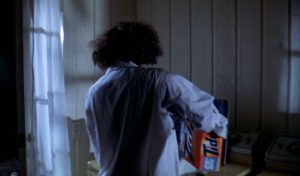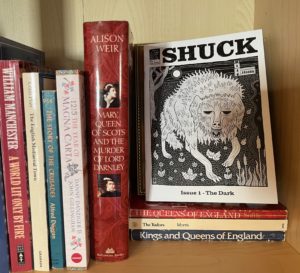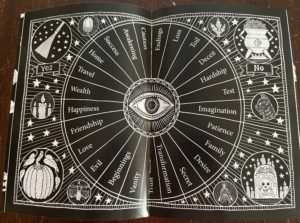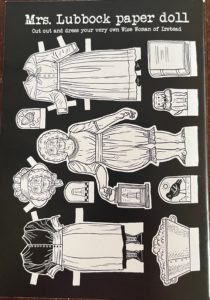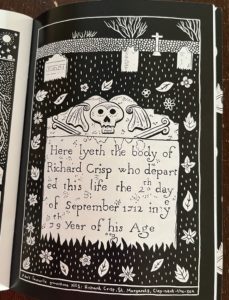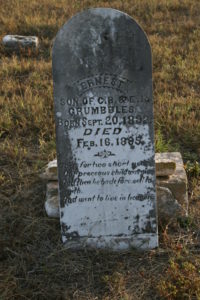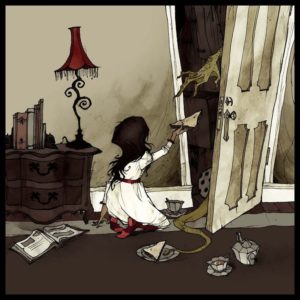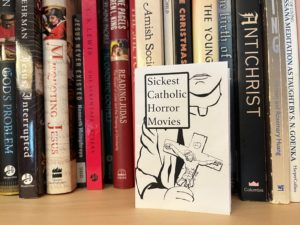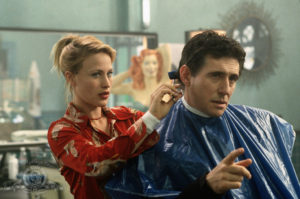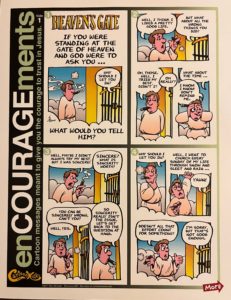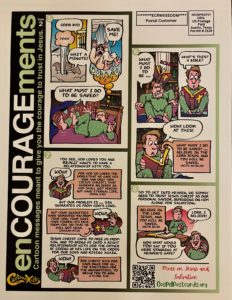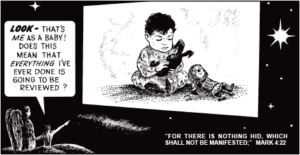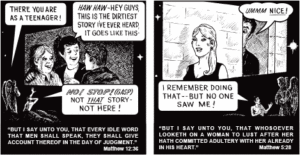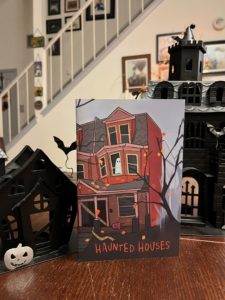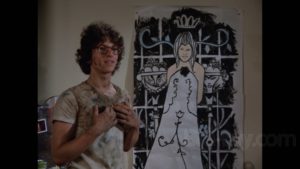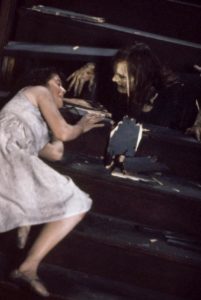So, did everyone’s great-grandmother keep scrapbooks where she pasted clippings from news stories about all the military personnel from her general area? Or was it just mine?
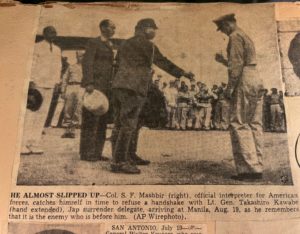
My maternal grandfather’s mother spent untold hours of her life pasting newspaper clippings about military members into these now-crumbling scrapbooks. I am unsure how many of these she kept – I inherited these three after my mother died. They span from active war during WWII through the end of the Korean War and cover everything that could possibly happen to a person during and after war. Obituaries, mostly death in action notices. Missing in action notices. Deployment. Notices of boot camp graduation. Repatriation after internment in prisoner of war camps. Slices of life back home with new babies. Marriage notices. Fun stories about war brides who were waiting for their American GI husbands to get them back to the United States. Just thousands upon thousands of clippings about the men who served in WWII and the Korean War and who hailed from towns in and around Abilene, Texas.
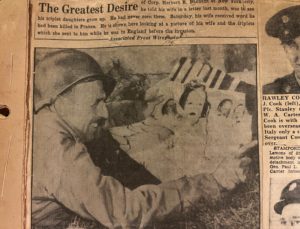 There are some articles about men who were not Texans – for example, she saved a story about the four Roosevelt family members were were serving in active duty overseas and a story about a man from New York who died in action before ever meeting his triplet daughters who were born after he was shipped out – but the vast majority are stories about men from the towns around where she lived. I can only guess at her motives for maintaining these scrapbooks but I am beginning to suspect that I came honestly by my own obsessive interests and compulsive need to gather around me as many books and magazines as possible.
There are some articles about men who were not Texans – for example, she saved a story about the four Roosevelt family members were were serving in active duty overseas and a story about a man from New York who died in action before ever meeting his triplet daughters who were born after he was shipped out – but the vast majority are stories about men from the towns around where she lived. I can only guess at her motives for maintaining these scrapbooks but I am beginning to suspect that I came honestly by my own obsessive interests and compulsive need to gather around me as many books and magazines as possible.
The pages of these scrapbooks are quite fragile. It’s impossible to really pore over them the way I want because the pages have all separated from the bindings. Some of the pages are crumbling and I really need to find a way to preserve them before they all turn to dust. These scrapbooks are piecemeal documentaries about war and places in time that seem worth holding onto for as long as I can. The newspaper articles are decidedly un-PC, referring to “japs” and “krauts.” They at times seem irreverent, discussing “Hitlerland” and “Nazi-Land.” Heartbreaking stories of teen boys killed in the line of duty bracketed by slice of life stories stateside. Harrowing stories of battles across both theaters of WWII. Some of them are baffling, like a soldier who initially refused to be traded with a Korean prisoner of war and repatriated, though he later changed his mind. I would love to know more about that one. Pages and pages and pages of the background characters in the story of the world, each the main character in their own story, even if only for a moment, but preserved for decades in a demented old woman’s scrapbooks. It would be terrible for these stories to be lost once and for all. I would love to somehow scan all of these clippings and get them on genealogy databases. I bet there’s a lot of lost family lore in these rotting pages. If an archivist comes across this paragraph and has some ideas, please let me know.
Her interest in all of these men and the wars that shaped their stories has, in a small way, rehabilitated my image of this woman who died before I was even born. Mary Isabelle “Mollie” Day was born in 1877, and like many women of her time, she had a passel of children and there was a significant, almost-generational gap between her oldest and youngest child. My grandfather was the youngest and he was tasked with taking care of his mother after his father died. I’ve discussed Mollie obliquely on this site before, mostly in a discussion of antinatalism, of all things. She was an absolute terror, or at least she was in her later life. Mollie ran roughshod over my sensitive and anxious grandmother and made my aunt a nervous wreck. My mother had to live with the old woman most of her youth and claims that she escaped unscathed but signs point to that statement being “a cope,” as the kids say. Mollie died in 1962 and all I knew of her is, of course, second-hand and, outside of knowing that in many respects she was a vile Irish hag, I know precious little about her.
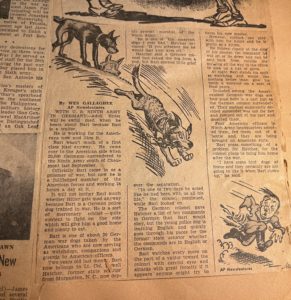 When not documenting the soldiers from her old stomping grounds, Mollie collected feel-good stories about the war that probably made national news in some regard. I’d love to know her selection criteria because some of the clippings are straight-up loony. Like a cartoon depicting former German police dogs chasing down a terrified Hitler. Or one where a soldier who gave blood to save Tojo’s life was delighted when the man was hanged.
When not documenting the soldiers from her old stomping grounds, Mollie collected feel-good stories about the war that probably made national news in some regard. I’d love to know her selection criteria because some of the clippings are straight-up loony. Like a cartoon depicting former German police dogs chasing down a terrified Hitler. Or one where a soldier who gave blood to save Tojo’s life was delighted when the man was hanged.
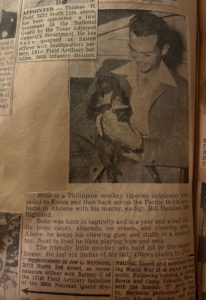
Rummaging gently through the scrapbooks kept by a foul-tempered old woman is possibly the best way to remember the Armed Forces in America. It becomes hard, especially for someone who is not young herself anymore, to look at those earnest, well-scrubbed faces and know they all died, at ages far younger than me, decades before I was born. You see all those faces, all the specific people who carried the military mission on their backs, and you feel all sorts of emotions. Pride at the way the country came together during WWII (less so with the Korean War, at least for me), sadness at all the loss, empathy for mothers, wives and families who forever lost their futures, fury at the absolute waste of human potential, and bafflement when all those stories are flanked by a fluff piece about a dude who somehow brought a monkey back from the Pacific Front.
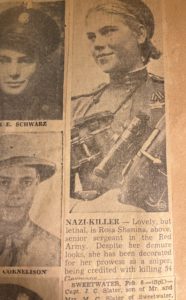
You need to feel pride, sadness, pity, anger and bafflement when you think about the men and women who have served and currently serve in the American Armed Forces, I think. I wish I knew if this was something Mollie did her entire life. Are there scrapbooks of young American men who died in World War I that got separated from the ones I inherited? Why did Mollie decide to do this, aside from the obsessive compulsivity I mentioned earlier as a potential inherited trait. Mollie died in 1962, so she didn’t get a chance to collect clippings about the Vietnamese conflict, and by then the world was changing. I don’t think we’d see the same sort of oxymoronic jaded innocence seen in Mollie’s scrapbooks – breathless stories about human triumph sandwiched between virulent racist caricatures were on the wane in the 1970s, though I probably shouldn’t say that with such conviction. I suspect had Mollie lived into her nineties and continued this endeavor, I’d walk away with similarly conflicted feelings.
War can show you the best and worst people can do, and in a weird way, Mollie’s scrapbooks reflects this dichotomy as it applies to her own legacy. These days I don’t immediately think “vile Irish hag” on the rare occasions I think about my great-grandmother. I now just think of her as Mollie, a weird, complicated old lady who probably would have understood my love of death photography. Mollie collected the images and faces of the people who lie beneath all those photos of military cemeteries you’ll see in your timelines today, and I wish I could share all of them today but I can’t. Even if time were not a consideration, I fear messing around too much in the scrapbooks lest they completely fall apart. But hopefully I shared enough of Mollie’s obsession that it makes this day a bit more complicated for you, too.
Lots of full-size photos of the scrapbooks under the cut.
